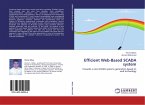Computer-aided data processing methods are widely used in various areas of experimental sciences, technology, medicine, agriculture, etc. This book is destined to present a specific sort of experimental data processing methods based on morphological spectra (MS). The concept of morphological spectra is based on a modification of the system of orthogonal Walsh functions, their adaptation to analysis of numerical discrete data structures: time series, single or serial images, etc. The main merits of morphological spectra in practical applications consist in easiness of their calculations (as being based on combinations of two main operations: data addition and/or subtraction) as well as simple spectral components' geometrical interpretation. The book presents theoretical backgrounds of the MS-based methods and their application to numerical data series analysis, image analysis (in particular - analysis of textures), image enhancement by filtering, numerical evaluation of image filtering procedures and selected tasks of analysis of serial images. The described methods are illustrated by examples taken mainly from the area of biomedical engineering.







